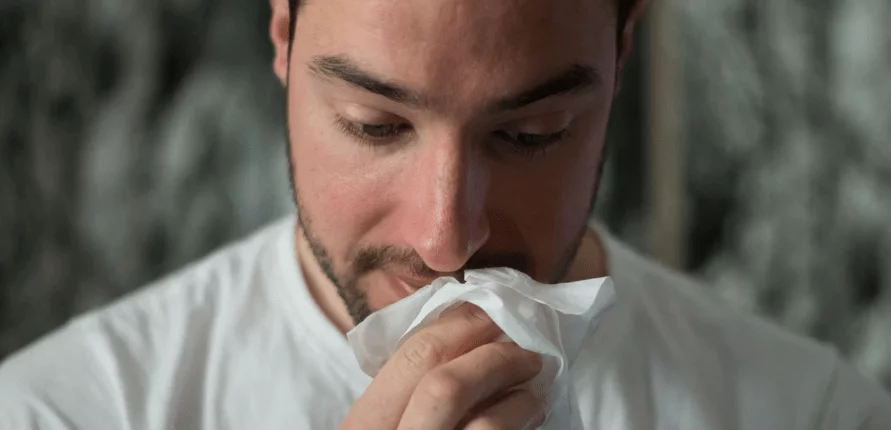Can You Sue for Food Poisoning?
If you visited a restaurant and believe you ate something that made you sick, you may be able to take legal action. The earlier you prepare your case, the more likely you will be able to attract and put together a strong claim.
So, can you sue for food poisoning?
Introduction
Food poisoning cases can often be traced back to a specific location.
This is especially true if the source is a restaurant or multiple people who ate the same meal are affected. The business or food provider becomes the common denominator, which may, in some cases, lead victims to wonder if they can sue.
Can you sue for food poisoning?
We have the answer and some tips for your consideration below.
Can You Sue For Food Poisoning?
So, can you sue for food poisoning?
It might seem like a strange question considering most people recover from food poisoning within 2–3 days, but it’s worth asking if that down-time has interfered with your schedule.
Yes, you can sue for food poisoning.
The side effects of food poisoning can range from mild to severe enough to cause death or long-term hospitalization. Victims often find themselves with damages as a result, including mounting medical bills, loss of time at work, intense pain and suffering, loss of income, or even, in severe cases, permanent disabilities.
Any time a form of loss is directly related to negligence you have the right to sue in the Civil Court This includes when food causes you to become sick, and you suffer losses as a direct result. However, you must be able to prove not only that it was the food that made you sick, but also that the restaurant’s negligence directly contributed to the food poisoning incident.
Restaurants can be negligent if they:
- Engage in improper cleaning methods. Poor cleaning allows bacteria to flourish, especially where meats are concerned. It is possible for food-borne illnesses to begin due to a poorly cleaned grill, refrigerator, or counter.
- Use inadequate cooling or heating. Each type of food or ingredients must be kept at a specific temperature in order to prevent bacterial growth. For example, potentially hazardous foods like raw chicken should be kept refrigerated at no more than 41°F degrees before cooking. Once cooked, it should be kept at no less than 135 degrees F. This prevents salmonella
- Allow workers with known food-borne illnesses to handle food. This isn’t as common, but it still counts. Allowing an employee who is sick with a contagious food-borne illnesses (like coli) to handle food increases the risk of transmission. If they do so knowingly, they may be liable for your illness.
- Provide opportunities for cross-contamination. Some foods should never be mixed, either due to the fact that they trigger increased bacterial growth when combined or because they may transfer bacteria back and forth. For example, if a restaurant allows prep chefs to cut both raw chicken and raw beef on the same surface, salmonella transmission may occur.
- Ignore handwashing procedures. Chefs, line cooks, and waitresses who do not properly wash their hands may pass on illnesses like E. coli via food. This can trigger a case of food poisoning. However, you will need to be able to prove this in order to win your case.
Examples of Food Poisoning Settlements
To help cement these concepts in your mind, we’ll give a few examples of food poisoning cases in the next few sections.
McDonald’s
In 2018, hundreds of people became sick after eating salads purchased at McDonald’s restaurants in 10 different states. It was later discovered that the leafy greens used within the product were contaminated with cyclospora, a parasite that can cause extreme gastrointestinal distress for weeks or even months. The fast-food chain was eventually forced to pull the entire product line and find a new supplier, as they were unable to locate the pathway or determine where the infection originated.
Taco Bell
In July of 2018, Taco Bell was forced to recall its entire line of queso dips after it was discovered to contain c. botulinum toxins. This is the same bacteria that causes botulism in humans, which always produces extreme illness and is frequently fatal.
Taco Bell has also been implicated in multiple salmonella poisoning cases over the years. This includes two different incidents in 2010 that caused customers at more than one location across the country to become sick.
Other Restaurants in Los Angeles
In 2015, dozens of people came down with a mysterious food-borne illness after eating at Chipotle locations throughout LA and Simi Valley. The company attempted to blame the rash of diarrhea, vomiting, and other symptoms to “sick employees” who were permitted (or perhaps forced) to work shifts while under the weather. The real cause of the food poisoning case was never identified.
How Much Money Can You Sue For In a Food Poisoning Case?
Technically, there is no distinct cap on compensation within a food poisoning case in California. You do need to be able to prove that the amount you are suing for directly correlates to some type of loss connected with the incident; you can’t sue for any amount “just because.”
Common types of loss in a food poisoning case might include:
- Pain and suffering
- Medical bills
- Loss of income
- Punitive damages
However, it is important to note that proving a connection between your illness, the restaurant, their negligence, and your loss can be difficult, or sometimes, even all but impossible. Your best bet is to work with a lawyer from day one.
How to Find a Food Poisoning Lawyer
Finding a food poisoning lawyer in California has never been easier.
Simply reach out to a legal referral service and ask them to help you find the best option. These organizations, which are licensed by the California Bar, maintain a large database of vetted and proven legal experts with a track record for success. The representative you speak with when you call will cross-reference your information, your case, and any available lawyers to identify the best person for the job.
Conclusion
If you recently became ill after eating at a restaurant, you may be able to take legal action. There are certain considerations to keep in mind, but you can sue for food poisoning with a strong case. If you’re interested in exploring your options, give the SFVBA Attorney Referral Service a call to speak with someone about scheduling a free consultation with an attorney near you.
Are you in search for a certified attorney to represent you?
Let us help you find one today!



